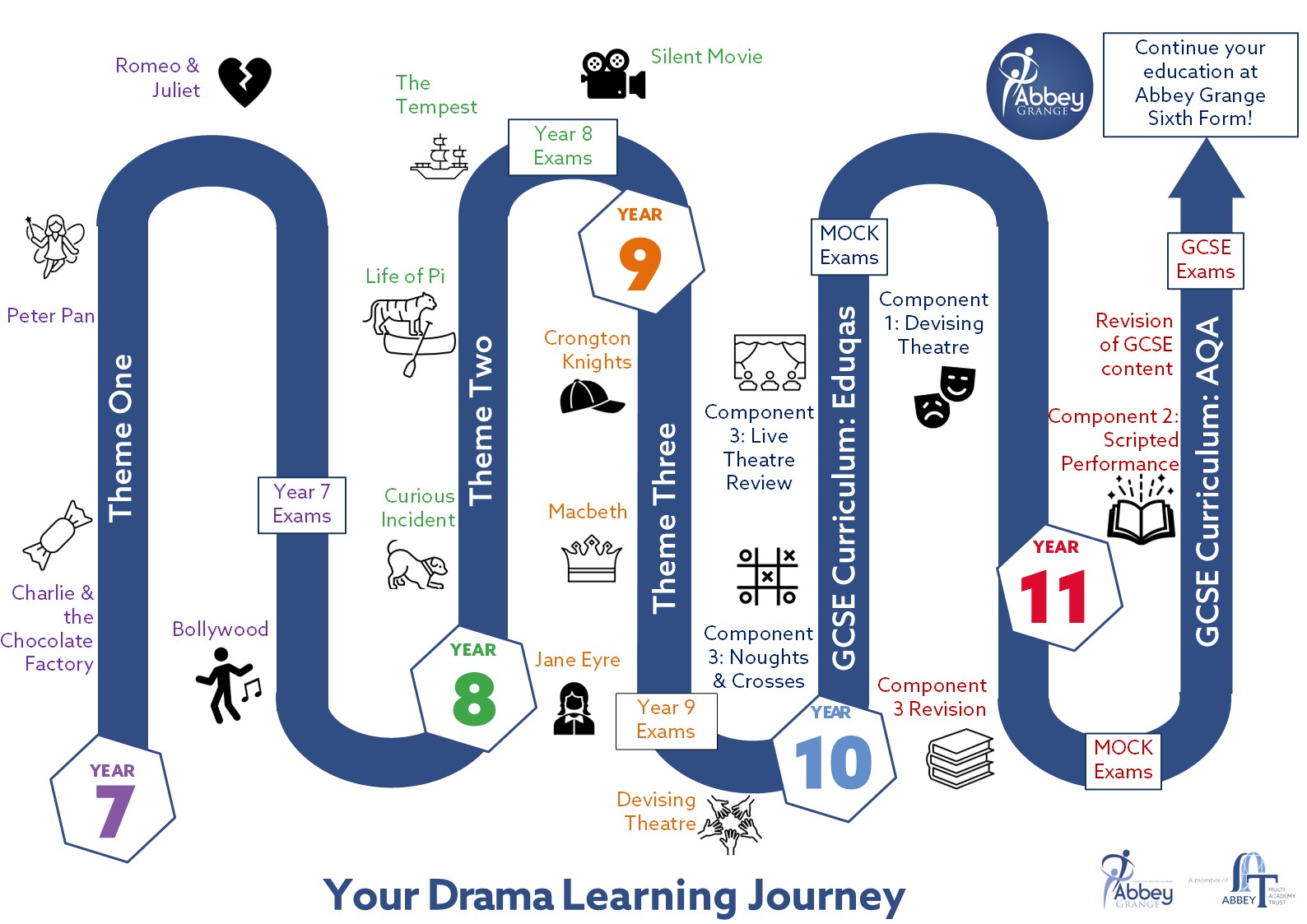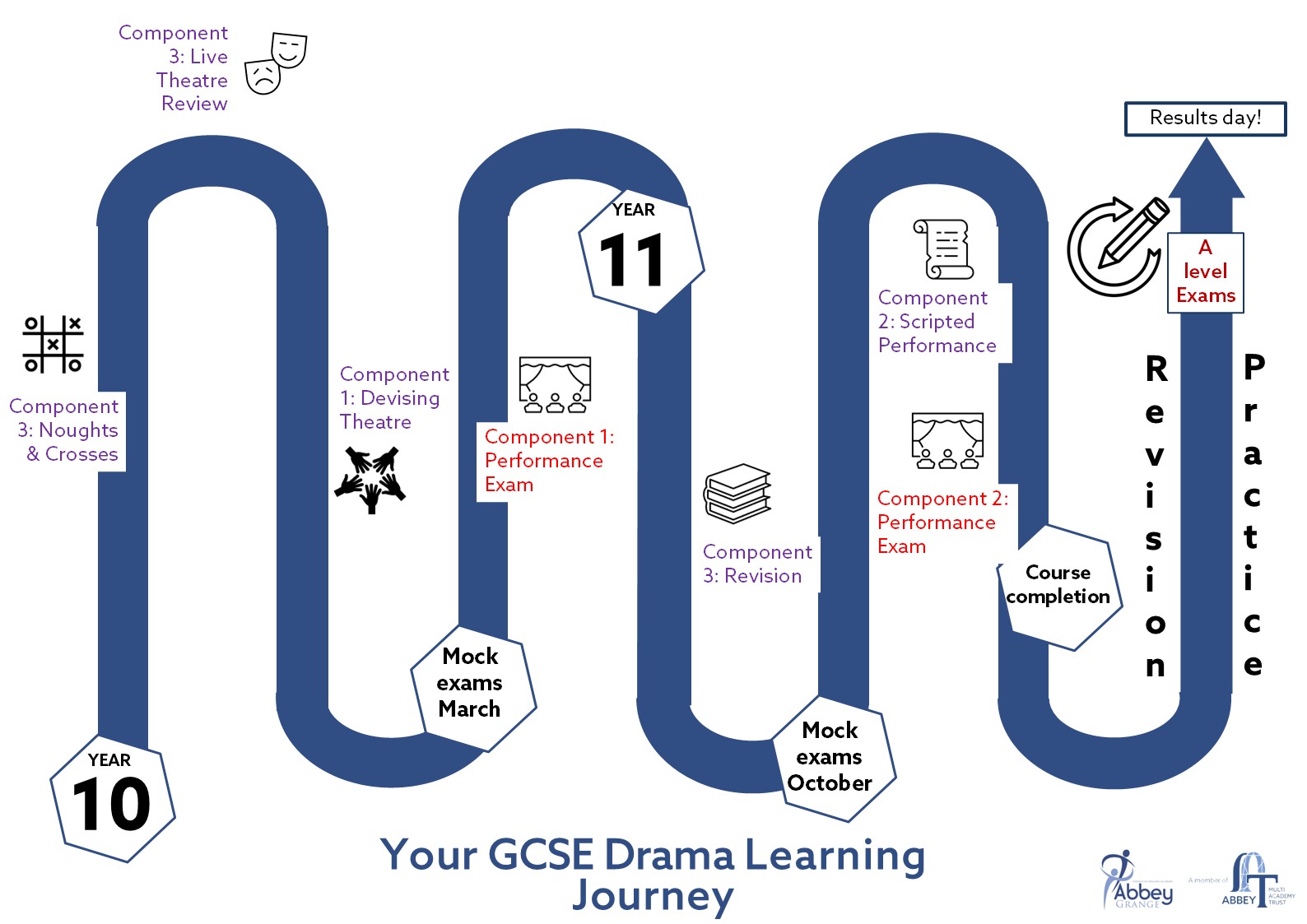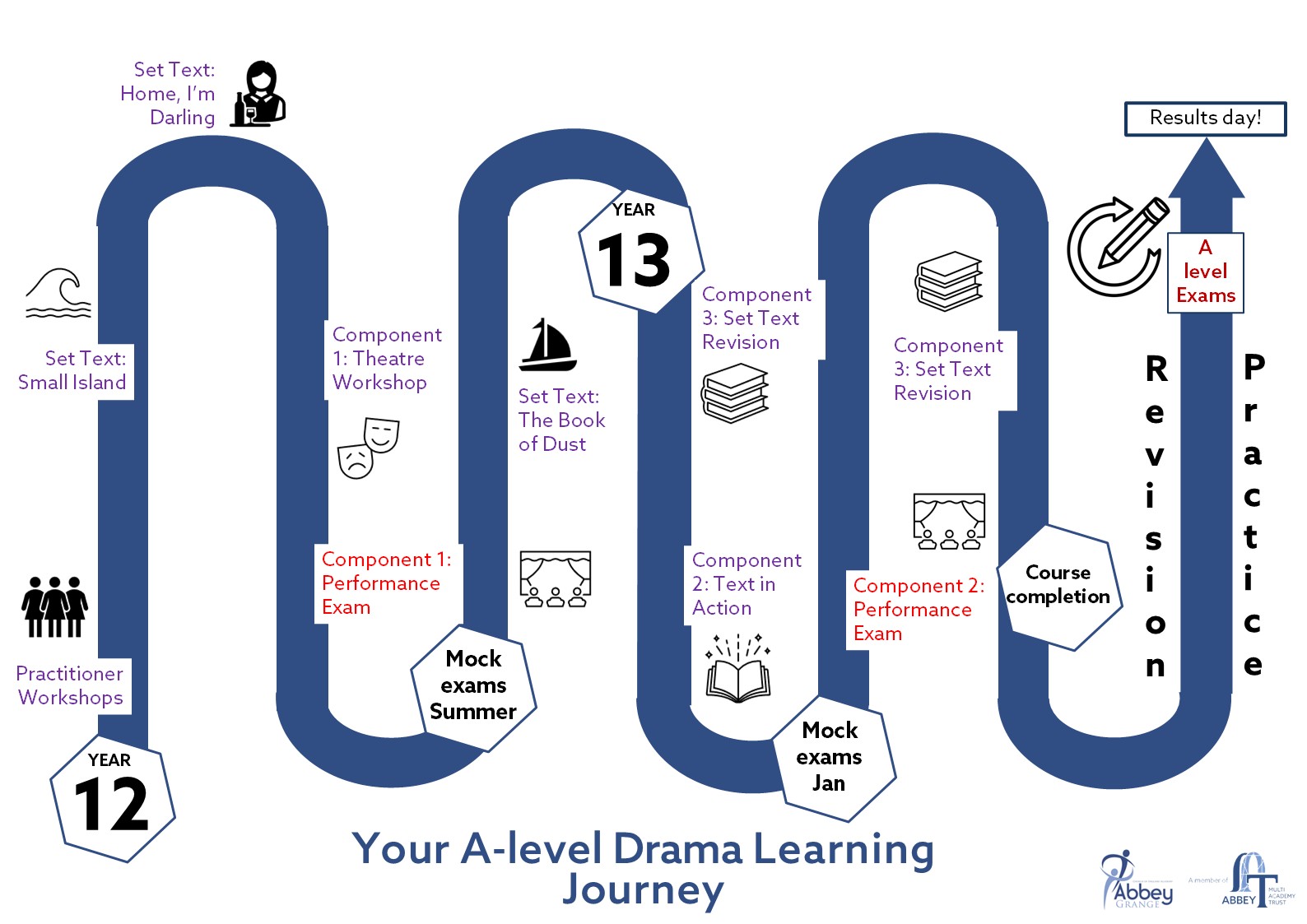
Our vision in the Drama department is to encourage a love of theatre through a broad, balanced and inclusive curriculum, using drama as a tool to explore real life issues and foster the personal growth and development of students, enabling them to thrive. Through exposure to high quality, professional theatre and a meticulously planned curriculum, students will understand that theatre is diverse and for all, helping them to excel in their future endeavours.

Students will have Drama lessons once a fortnight and explore a range of topics and skills designed to develop their understanding of theatre and their ability to confidently perform.
Through practical group work students will discuss their own ideas and opinions to creatively explore scripted texts, topic-based drama and watch professional theatre performances within their lessons.
Throughout the year we explore a range of topics which help students to put themselves in others shoes, develop empathy and explore a range of cultures and beliefs.
You will be assessed on three areas:
By taking GCSE Drama, you will be developing a range of transferable skills;
All skills which are vital to any career, not just aspiring actors, and dramatists.
Through studying our set text, Noughts and Crosses students will learn how to interpret a script and communicate this to an audience.
They will also work in groups to create their own original performances covering topics they feel enthusiastic about, and apply techniques used by industry professionals.

Over the two-year GCSE course, you will cover three Components:
Component 1: Devising Theatre (40%)
Component 2: Scripted Performance (20%)
Component 3: Written Exam (40%)
The nature of the course requires independent research and group work from the students. They will learn about key events across the world and the impact this has had on the world globally and on a personal level.
Currently the set text studied is ‘Noughts and Crosses’ by Malorie Blackman, adapted by Sabrina Mahfouz which explores a dystopian world of inequality, relationships, racism, and power.
Students are constantly encouraged to ask real life questions and think about the wider world and their place within it.
Below are the assessment objectives for this specification.
Learners must:
The table below shows the weighting of each assessment objective for each component and for the qualification as a whole.

By taking GCSE Drama, you will be developing a range of transferable skills, vital for any career;
The next step in our 7-year Learning Journey is to take A-level Drama and Theatre Studies.

Over the two year course students will cover three Components:
Component 1: Theatre Workshop (20%)
Students take an extract of an existing text and reimagine it under a new context. Students will work in groups research their chosen topic and use the techniques of a theatre practitioner to create an original performance. They will also keep a rehearsal log which will document their creation process.
Component 2: Text in Action (40%)
In this component, students create two performances. One is an extract from a published script; another is a devised performance based on a theme or topic. Alongside these two performances, students will use the methodologies and techniques of two more theatre practitioners and apply these to performance. Another rehearsal log and an evaluation are used to document the process and reflect on the success of the performance.
Component 3: Text in Performance (40%)
This is a written exam sat in the Summer term. For this, students will study three set texts;
Students will explore all aspects of staging these from how to direct their actors and play the characters, to choices for design elements such as lighting, set and costume. Within this unit, students will also watch a minimum of four theatre performances and use these to influence their decisions for their own concepts of the set texts.
Many of our students go on to pursue creative careers, gaining places at Conservatoires for Performing Arts, or Acting and Drama Degrees at University. Some have taken the decision to go straight into work, successfully being represented by talent agents.
However, previous A-level Drama students have also gone on to study Drama, Law, Medicine, Psychology, Music, Script Writing and a whole range of other subjects.
The transferable skills learnt through studying Drama are vital to any career and are often give students the “edge” in more competitive subject areas.
The table below shows the weighting of each assessment objective for each component and for the qualification as a whole.

By studying a range of theatre practitioners and play texts, students explore a range of perspectives and experiences of the world and encourages reflection of their own experiences.
The exposure to high quality, professional theatre also creates magical moments for students when they can see the awe and wonder that theatre truly creates.